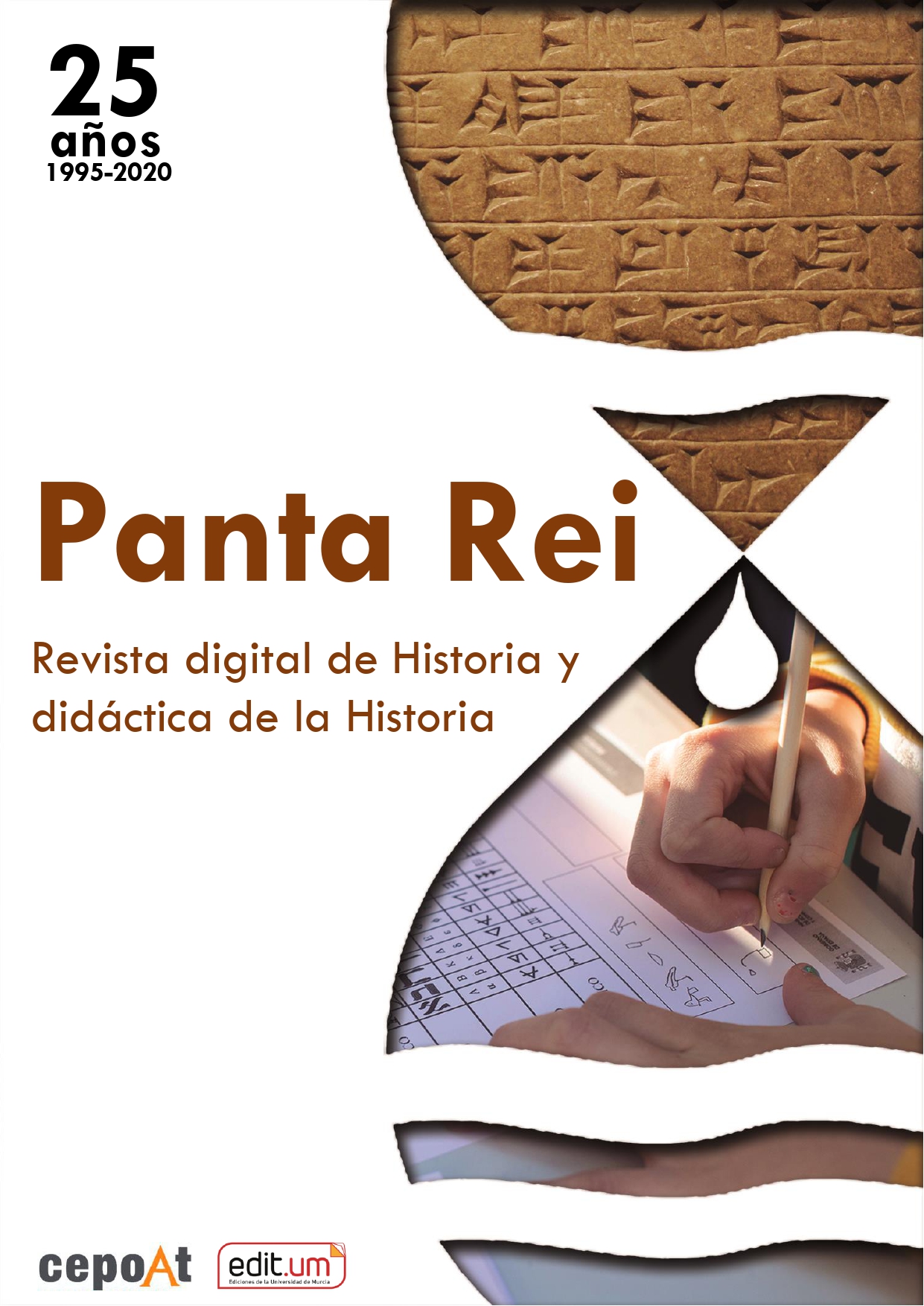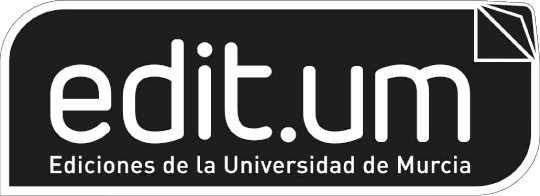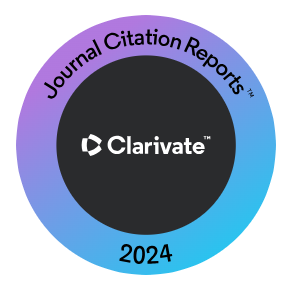Las narrativas nacionales en la enseñanza y el aprendizaje de la historia: Una revisión sobre los libros de texto y las narrativas de los estudiantes
Agencias de apoyo
- Ministerio de Ciencia, Innovación y Universidades (RTI2018-096495-B-I00)
Resumen
Tradicionalmente, las narrativas nacionales han jugado un papel central en la enseñanza y el aprendizaje de la historia. Sin embargo, desde finales del siglo XX, existe un énfasis en señalar lo inadecuado de estas narrativas para el desarrollo del pensamiento histórico. Este artículo, mediante una revisión sistemática, analiza la evolución del papel de las narrativas nacionales en los últimos 25 años. Para ello, se analiza por un lado el papel de las narrativas nacionales en los manuales de historia. Por otro lado, se recogen los principales avances producidos en cómo los estudiantes narran la historia de su nación. Las investigaciones muestran una pervivencia de estas narrativas nacionales en la transmisión y comprensión del pasado, si bien continúan surgiendo proyectos relevantes para desnacionalizar la enseñanza del pasado. Finalmente, se discuten algunos de los retos futuros que se plantean para este tipo de investigaciones.
Descargas
-
Resumen2604
-
PDF944
-
EPUB244
Citas
Adwan, S. y Bar-On, D. (2007). Leading forward: The experiences of Palestinians and Israelis in the Learning Each Other's Historical Narratives project. En L. Cajani (ed.), History teaching, identities and citizenship (pp. 143-166). Trent, Reino Unido: Trentham Books.
Alridge, D. P. (2006). The limits of master narratives in history textbooks: An analysis of representations of Martin Luther King. Jr. Teachers College Record, 108, 662-686. doi: 10.1111/j.1467-9620.2006.00664.x
Amin, S.N. (2014). The impact of identity politics in challenging national narratives: A case study among Canadian Muslims. Studies in Ethnicity and Nationalism, 14(3), 418-35. doi: 10.1111/sena.12105
Barton, K. C. y Levstik, L. (eds.) (2004). Teaching History for the Common Good. Mahwah, NJ: Lawrence Erlbaum Associates, Inc.
Berger, S. (2007). Writing national histories in Europe: Reflections on the pasts, presents, and futures of a tradition. En K. H. Jarausch y T. Lindenberger (eds.), Conflicted Memories: Europeanizing contemporary histories (pp.22-68). Nueva York: Berghahn Books.
Berger, S. y Lorenz, C. (eds.) (2008). The Contested Nation: Ethnicity, Class, Religion and Gender in National Histories. Basingstoke: Palgrave Macmillan.
Bilali, R. (2013). National narrative and social psychological influences in Turks’ denial of the mass killings of Armenians as genocide. Journal of Social Issues, 69(1), 16-33. doi: 10.1111/josi.12001
Bukh, A. (2007). Japan’s history textbooks debate: National identity in narratives of victimhood and victimization. Asian Survey, 47(5), 683-704. doi: 10.1525/as.2007.47.5.683
Carretero, M. (2011). Constructing patriotism. Teaching of history and memories in global worlds. Charlotte, CT: Information Age Publishing.
Carretero, M. y Van Alphen, F. (2014). Do master narratives change among high school students? A characterization of how national history is represented. Cognition and Instruction, 32(3), 290-312. doi: 10.1080/07370008.2014.919298
Carretero, M., Jacott, L. y López-Manjón, A. (2002). Learning history through textbooks: are Mexican and Spanish students taught the same story? Learning and Instruction, 12(6), 651-665. doi: 10.1016/S0959-4752(01)00036-6
Carretero, M., López, C., Fernanda, M. F. y Rodríguez-Moneo, M. (2012). Students historical narratives and concepts about the nation. En M. Carretero, M. Asensio y M. Rodríguez-Moneo (eds.), History Education and the Construction of National Identities (pp. 153-170). Charlotte CT: Information Age Publishing.
Carrier, P. (2018). The nation, nationhood, and nationalism in textbook research from 1951 to 2017. En E. Fuchs y A. Bock (eds.), The Palgrave Handbook of Textbook Studies (pp. 181-198). Londres: Palgrave Macmillan.
Chubaryan, A. y Maier, R. (2008). Twentieth Century History of Germany in a New Setting: Sources, Statistics, Art Documents. Moskva: Olma.
Crawford, K. (2000). Researching the ideological and political role of the history textbook issues and methods. History Education Research Journal, 1(1), 55-62. doi: 10.18546/HERJ.01.1.07
Crawford, K. A. y Foster, S. J. (2007). War Nation Memory: International Perspectives on World War II in School History Textbooks. Greenwich, CT: Information Age Publishing.
Dickinson, A. (2000). What should history be? En A. Kent (ed.), School subject teaching: The history and future of the curriculum. Londres: Kogan Page.
Doosje, B. y Branscombe, N. R. (2003). Attributions for the negative historical actions of a group. European Journal of Social Psychology, 33(2), 235-248. doi: 10.1002/ejsp.142
Doosje, B., Branscombe, N. R., Spears, R. y Manstead, A. S. R. (1998). Guilty by association: when one’s group has a negative history. Journal of Personality and Social Psychology, 75, 872-886. doi: 10.1037/0022-3514.75.4.872
Duara, P. (1995). Rescuing History from the Nation: Questioning Narratives of Modern China. Chicago: University of Chicago Press.
Egea Vivancos, A. y Arias Ferrer, L. (2015). Russell Crowe el gladiador, Colón el descubridor y otros protagonistas de la Historia. Buceando en las narrativas históricas de jóvenes universitarios españoles. CLIO. History and History teaching, 41. https://dialnet.unirioja.es/servlet/articulo?codigo=5303982
Foster, S. J. (1998). Politics, parallels and perennial curriculum questions: the battle over school history in England and the United States. Curriculum journal, 9(2), 153-164. doi: 10.1080/0958517970090203
Foster, S. J. (2011). Dominant traditions in international textbook research and revision. Education Inquiry, 2(1), 5–20. doi: 10.3402/edui.v2i1.21959
Foster, S. J. (2012). Re-thinking historical textbooks in a globalised world. En M. Carretero, M. Asensio y M. Rodríguez-Moneo (eds.), History Education and the Construction of National Identities (pp. 49-62). Charlotte CT: Information Age Publishing.
Foster, S. J. y Crawford, K. A. (eds.). (2006). What Shall We Tell the Children? International Perspectives on School History Textbooks. Greenwich, CT: Information Age Publishing.
Fuchs, E. (2011). Current trends in history and social studies textbook research. Journal of International Cooperation in Education, 14(2), 17–34. doi: 10.15027/34395
Fuchs, E. y Sammler, S. (2016). Textbooks between Tradition and Innovation: A journey through the history of the Georg Eckert Institute. Braunschweig: Georg Eckert Institute.
Geiss, P., Le Quintrec, G., y Bernlochner, L. (2006). Histoire/Geschichte: Europa und die Welt seit 1945. Stuttgart: Klett.
Gómez, C. J. y Puche, S. M. (2017). Narrativas nacionales y pensamiento histórico en los libros de texto de Educación Secundaria de España y Francia. Análisis a partir del tratamiento de los contenidos de la Edad Moderna. Vínculos de Historia, 6, 206-229. doi: 10.18239/vdh.v0i6.011
Gómez, C. J., Moreno, V. V. y Martínez, P. M. (2019). Competencias históricas y narrativas europeas/nacionales en los libros de texto. Cadernos de Pesquisa, 49(172), 210-234. doi: 10.1590/198053145406
Grever, M. y Van der Vlies, T. (2017). Why national narratives are perpetuated: A literature review on new insights from history textbook research. London Review of Education, 15(2), 286-301. doi: 10.18546/LRE.15.2.11
Haydn, T. (2004). History. En J. White (ed.), Rethinking the school curriculum (pp.87-103). Londres: Routledge.
Hobsbawm, E. (1997). Nations and Nationalism since 1780: programme, myth, reality. Cambridge: Cambridge University Press.
Janmaat, J. G. (2005). Ethnic and Civic Conceptions of the Nation in Ukraine's History Textbooks. European Education, 37(3), 20-37. doi: 10.1080/10564934.2005.11042394
Koulouri, C. (2005). Teaching Modern South East European History. Alternative Educational Materials, vols. 1–4. Thessaloniki: Centre for Democracy and Reconciliation in South East Europe (CDRSEE).
László, J. (2014) Historical Tales and National Identity: An introduction to narrative social psychology. Londres: Routledge.
Lee, P. (2005). Putting principles into practice: understanding history. En M. S. Donovan y J. D. Bransford (eds.), How students learn: history, mathematics and sciences in the classroom? (pp.31-78). Washington: National Academies Press.
Létourneau, J. (2017). Teaching national history to young people today. En M. Carretero, S. Berger y M. Grever (eds.), Palgrave Handbook of Research in Historical Culture and Education (pp.227-42). Basingstoke: Palgrave Macmillan.
Lévesque, S. (2017). History as a “GPS”: On the uses of historical narrative for French Canadian students’ life orientation and identity. London Review of Education, 15(2), 227-242. doi: 10.18546/LRE.15.2.07
López, C. (2015). Repensando las narrativas nacionales: Un análisis del origen, transmisión e influencia en el aprendizaje histórico. Panta Rei. Revista Digital de Ciencia y Didáctica de la Historia, 77-92. doi: 10.6018/pantarei/2015/6
López, C. (2019). When ‘we’are the alien forces: Misremembering the Conquest of America through the ‘Triumph over alien forces’ schematic narrative template. Culture & Psychology. doi: 10.1177/1354067X19894937
López, C., Carretero, M. y Rodríguez-Moneo, M. (2014a). Telling a national narrative that is not your own. Does it enable critical historical consumption? Culture & Psychology, 20(4), 547–571. doi: 10.1177/1354067X14554156
López, C., Carretero, M. y Rodríguez-Moneo, M. (2014b). Fostering National Identity, Hindering Historical Understanding. En The Catalyzing Mind (pp. 211-221). Nueva York, NY.: Springer.
López, C., Carretero, M. y Rodríguez-Moneo, M. (2015). Conquest or Reconquest? Students’ Conceptions of Nation Embedded in a Historical Narrative. Journal of the Learning Sciences, 24(2), 252-285. doi: 10.1080/10508406.2014.919863
López, C. y Márquez, M. G. (2018). Aportaciones de la psicología a la comprensión de las narrativas nacionales y la identidad nacional: pensamiento narrativo, identidades sociales y emociones colectivas. En A. Delgado, y A. Rivera (eds.), ¿Qué saben de su historia nuestros jóvenes? Enseñanza de la historia e Identidad nacional (pp. 99-118). Granada: Comares.
López, C. y Márquez, M. G. (2020). Proud but ashamed: narratives and moral emotions about the troubled national past in Spain. International Journal of Heritage Studies. doi: 10.1080/13527258.2020.1781680
Lowenthal, D. (1985). The past is a foreign country. Cambridge, MA: Cambridge University Press.
Lowenthal, D. (1998). The heritage crusade and the spoils of history. Cambridge, UK: Cambridge University Press.
Macintyre, S. y Clark, A. (2003). The History Wars. Melbourne: Melbourne University Press.
Maier, R. (2017). Tools in Teaching Recent Past Conflicts: Constructing Textbooks beyond National Borders. En M. Carretero, S. Berger, y M. Grever (eds.), Palgrave Handbook of Research in Historical Culture and Education (pp. 673-696). Londres: Palgrave Macmillan.
Olofsson, H., Samuelsson, J., Stolare, M. y Wendell, J. (2017). The Swedes and their history. London Review of Education, 15(2), 243-258. doi: 10.18546/LRE.15.2.08
Podeh, E. (2000). History and memory in the Israeli educational system: The portrayal of the Arab–Israeli conflict in history textbooks (1948–2000). History and Memory, 12(1), 65–100. doi: 10.1353/ham.2000.0005
Popp, S. (2009). National textbook controversies in a globalizing world. En E. Erdmann, L. Cajani, A. S. Khodnev, S. Popp, N. Tutiaux-Guillon y G. D. Wrangham (eds.), History Teaching in the Crossfire of Political Interests (pp. 109-122). Schwalbach: Wochenschau.
Porat, D. (2001). A contemporary past: History textbooks as sites of national memory. En A. Dickinson, P. Gordon y P. Lee (eds.), Raising Standards in History Education (pp. 36-55). Londres: Woburn Press.
Renan, E. (1882). What is a Nation? En H. K. Bhabha (1990) (ed.), Nation and Narration (pp. 8-22). Londres: Routledge.
Repoussi, M. (2006). Politics questions history education: Debates on Greek history textbooks. En E. Erdmann, L. Cajani, A. S. Khodnev, S. Popp, N. Tutiaux-Guillon y G. D. Wrangham (eds.), Historical Consciousness – Historical Culture (pp. 99-110). Schwalbach: Wochenschau Verlag.
Rodríguez Moneo, M. y López, C. (2017). Concept Acquisition and Conceptual Change in History. En M. Carretero, S. Berger, y M. Grever (eds.), Palgrave Handbook of Research in Historical Culture and Education (pp. 469-490). Londres: Palgrave Macmillan.
Rüsen, J. (2004). Historical Consciousness: narrative structure, moral function, and ontogenetic development. En P. Seixas (ed.), Theorizing historical consciousness (pp. 63-85). Toronto: University of Toronto Press.
Sáiz, J. (2017). Pervivencias escolares de narrativa nacional española: Reconquista, Reyes Católicos e Imperio en libros de texto de historia y en relatos de estudiantes. Historia y Memoria de la Educación, 6, 165-201. doi: 10.5944/hme.6.2017.17137
Sáiz, J. (2018). Memorizar España sin pensarla históricamente: historia escolar e identidad nacional. En A. Delgado y A. Rivera (eds.), ¿Qué saben de su historia nuestros jóvenes? Enseñanza de la historia e identidad nacional (pp. 75-98). Granada: Comares.
Sáiz, J. y Barca, I. (2019). Narrativas nacionais de estudantes espanhóis e portugueses. Cadernos de Pesquisa, 49(172), 78-95. doi: 10.1590/198053145414
Sáiz, J. y López Facal, R. (2016). Narrativas nacionales históricas de estudiantes y profesorado en formación. Revista de educación, 374, 118-141. doi: 10.4438/1988-592X-RE-2016-374-328
Sánchez, R., Arias, L. y Egea, A. (2016). The perduration of master narratives: The “discovery”, conquest and colonisation of America in Spanish history textbooks. International Journal of Historical Learning, Teaching and Research, 13(2), 127–137.
Schissler, H. y Soysal, Y. N. (eds.) (2005). The nation, Europe, and the world: Textbooks and curricula in transition. Nueva York, NY.: Berghahn Books.
Seixas, P. (ed.) (2004). Theorizing historical consciousness. Toronto: University of Toronto Press.
Shemilt, D. (1980). Evaluation study: Schools council history 13-16 project. Edinburgh: Holmes McDougall.
Shepard, C., Reid, A. y Shepherd, K. (1993). Peace and war: Discovering the past Year 9. Londres: John Murray.
Smith, A. D. (1991) National Identity. Londres: Penguin.
Symcox, L. y Wilschut, A. (eds.) (2009). National History Standards: The problem of the canon and the future of teaching history. Charlotte, NC: Information Age Publishing.
Van der Leeuw-Roord, J. (ed.) (2004). History changes. Facts and figures about history education in Europe since 1989. The Hague: EUROCLIO.
VanSledright, B. (2008). Narratives of nation-state, historical knowledge, and school history education. Review of Research in Education, 32(1), 109–146. doi: 10.3102/0091732X07311065
Voss, J. F. y Wiley, J. (2006). Expertise in History. En N. Ericsson, P. Feltovich y R. R. Hoffman (eds.), The Cambridge Handbook of Expertise and Expert Performance (pp. 569-584). Cambridge: Cambridge University Press.
Wertsch, J. V. (1997). Consuming Nationalism. Culture and Psychology, 3, 461-471. doi: 10.1177/1354067X9734002
Wertsch, J. V. (2002). Voices of Collective Remembering. Cambridge: Cambridge University Press.
Wertsch, J. V. (2017). Foreword to the special feature 'Negotiating the nation: Young people, national narratives and history education', edited by J. Létourneau and A Chapman. London Review of Education, 15(2), 152-154. doi: 10.18546/LRE.15.2.02
Wills, J. S. (2011). Misremembering as mediated action: Schematic narrative templates and elementary students' narration of the past. Theory & Research in Social Education, 39(1), 115-144. doi: 10.1080/00933104.2011.10473449
Wineburg, S. (2001). Historical Thinking and Other Unnatural Acts. Filadelfia: Temple University Press.
Derechos de autor 2020 César López Rodríguez

Esta obra está bajo una licencia internacional Creative Commons Atribución-CompartirIgual 4.0.
Todos los contenidos publicados en nuestra revista están sujetos a una licencia Atribución 4.0 Internacional (CC BY-SA 4.0) de Creative Commons. Usted es libre de compartir (copiar y redistribuir el material en cualquier medio o formato) y adaptar (remezclar, transformar y crear a partir del material para cualquier finalidad, incluso comercial), bajo los siguientes términos:
Reconocimiento: Debe reconocer adecuadamente la autoría, proporcionar un enlace a la licencia e indicar si se han realizado cambios. Puede hacerlo de cualquier manera razonable, pero no de una manera que sugiera que tiene el apoyo del licenciador o lo recibe por el uso que hace.
CompartirIgual: Si remezcla, transforma o crea a partir del material, deberá difundir sus contribuciones bajo la misma licencia que el original.
El texto completo de la licencia se puede consultar en: Licencia Creative Commons












